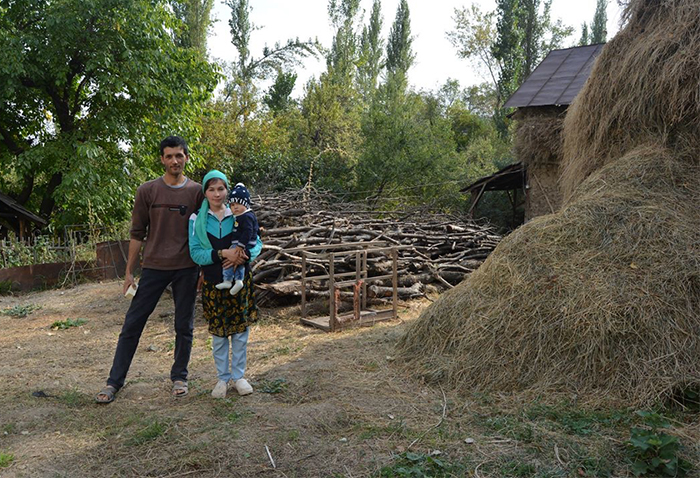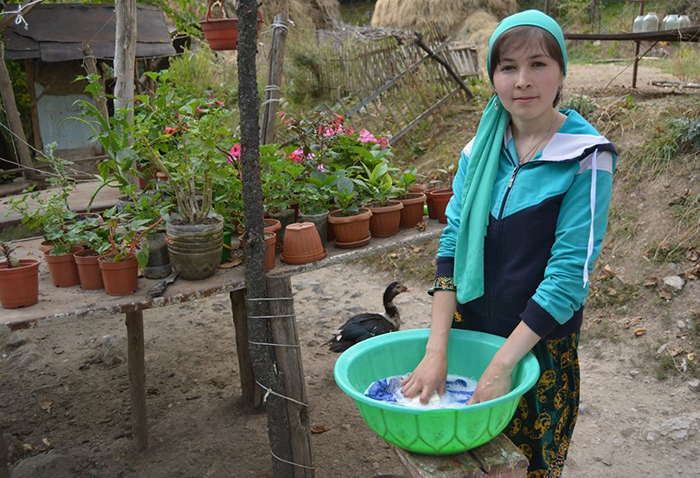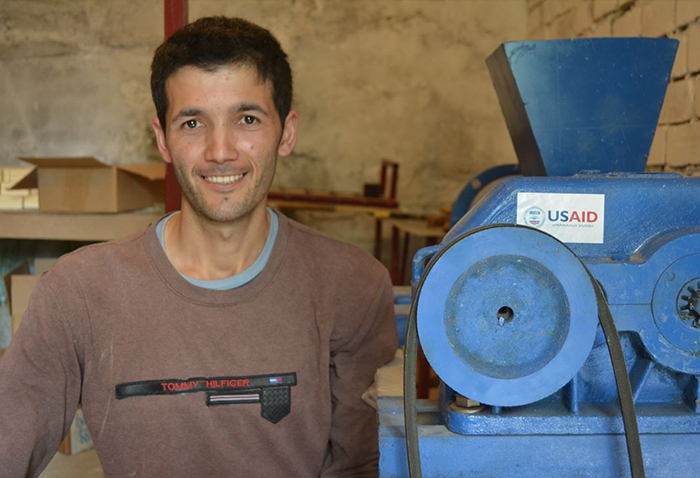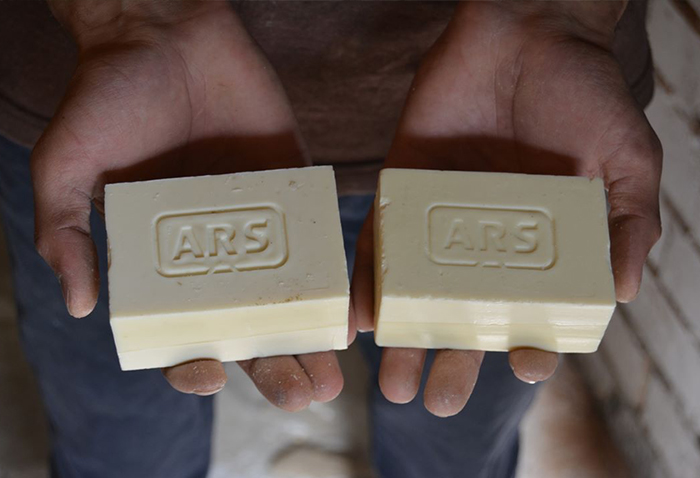
Bilal Sirazhidin Uulu is a 26-year-old resident of Arslanbob village in the Jalal-Abad region of the Kyrgyz Republic. He lives in the village with his wife, young son, and his parents.
Arslanbob is a beautiful scenic village with many natural attractions, making it a popular destination among tourists in the region. The arrival of visitors provides opportunities for local residents to earn a living through guided tours. Like others in his community, Bilal and his family take advantage of the tourist season. Bilal works as a guide, while his mother makes local sweets, kurut and talcan, and his father makes wooden souvenirs to sell at tour sites.
Facing Limited Job Opportunities
Unfortunately, income-generating activities like these are only available for tourist season, which lasts just five months out of the year. The winters are harsh, and there are no winter activities to attract tourists. During the remaining months of the year, the residents of Arslanbob have to seek other ways to support their families and make ends meet. There are few employment opportunities, causing young people to migrate to neighboring Uzbekistan and other countries to ensure financial security for their families.
Bilal loves his family and his community, and does not want to leave his village. Being a young man with an entrepreneurial spirit, he began to think outside the box to find opportunities that would allow him to remain in the village. One day, he noticed his wife rubbing her chapped hands after doing the laundry. He began talking to the other women in their community and realized that they all had the same problem. Most women in the region wash their family’s clothes using a low-quality detergent that was harsh on their hands.

An Entrepreneurial Idea
In noticing this problem, Bilal was inspired to start a small business making affordable, good-quality soap and laundry products. This business could be a source of income for his family, while creating a useful product for the village.
Bilal had always been interested in chemistry in school, and had a vague idea of how soap could be made. He decided that he would try to develop soap and detergent with natural products. However, he needed to learn more about the process of commercial soap-making and running a business. A university education was financially unfeasible, so he asked around and came to learn about the USAID-funded Demilgeluu Jaashtar (Youth Initiative), an initiative managed primarily by the Aga Khan Foundation’s Mountain Societies Development Support Programme (MSDSP KG).
Demilgeluu Jaashtar helps to expand job opportunities for young people and stem the flow of migration by providing them with sought-after job skills through professional development and leadership training. The initiative connected Bilal to their School for Social Entrepreneurship to equip him with the business skills he needed to get started.
Turning an idea into reality

Bilal’s successful application to join the School of Social Entrepreneurs in Jalal-Abad changed his life. His dream of starting his own business in his village started to become a reality. The training and mentorship program taught him how to develop a cost-effective business that provides value for money, especially for people in his village who have a limited income. He learned about the commercial soap production process, managing employees, and building a business to scale from a pilot project.
Following the training, Bilal produced a small amount of soap to test the market. To his delight, his customers responded positively to his product, and he sold all the soap he had made. As Bilal looked to expand his production, he knew he needed machinery. He also wanted to make the product affordable, so he had to think about utilizing locally available materials.
Bilal pitched his business model in a competition organized by Demilgeluu Jaashtar, and won a small, in-kind grant. Bilal used the grant, as well as his determination and ingenuity, to make a soap-making machine with spare parts from discarded equipment. For raw material, Bilal figured out that he could use sheep fat, which was readily available at a low cost since the people of Arslanbob rear sheep and eat a lot of mutton.
Creating better opportunities for others

Expanding his business has created new employment opportunities for Bilal’s community in Arslanbob. Bilal understands that creating jobs with decent working and salary conditions is the key factor to address the migration challenges in the region. He hopes to find partners in the Kyrgyz Republic and abroad to expand his workshop to produce different types of products. This would increase job opportunities in Arslanbob too.
“I want to expand my workshop to create opportunities for even more young people…and improve the conditions for my employees, educate them, and help them grow their expertise,” Bilal says.